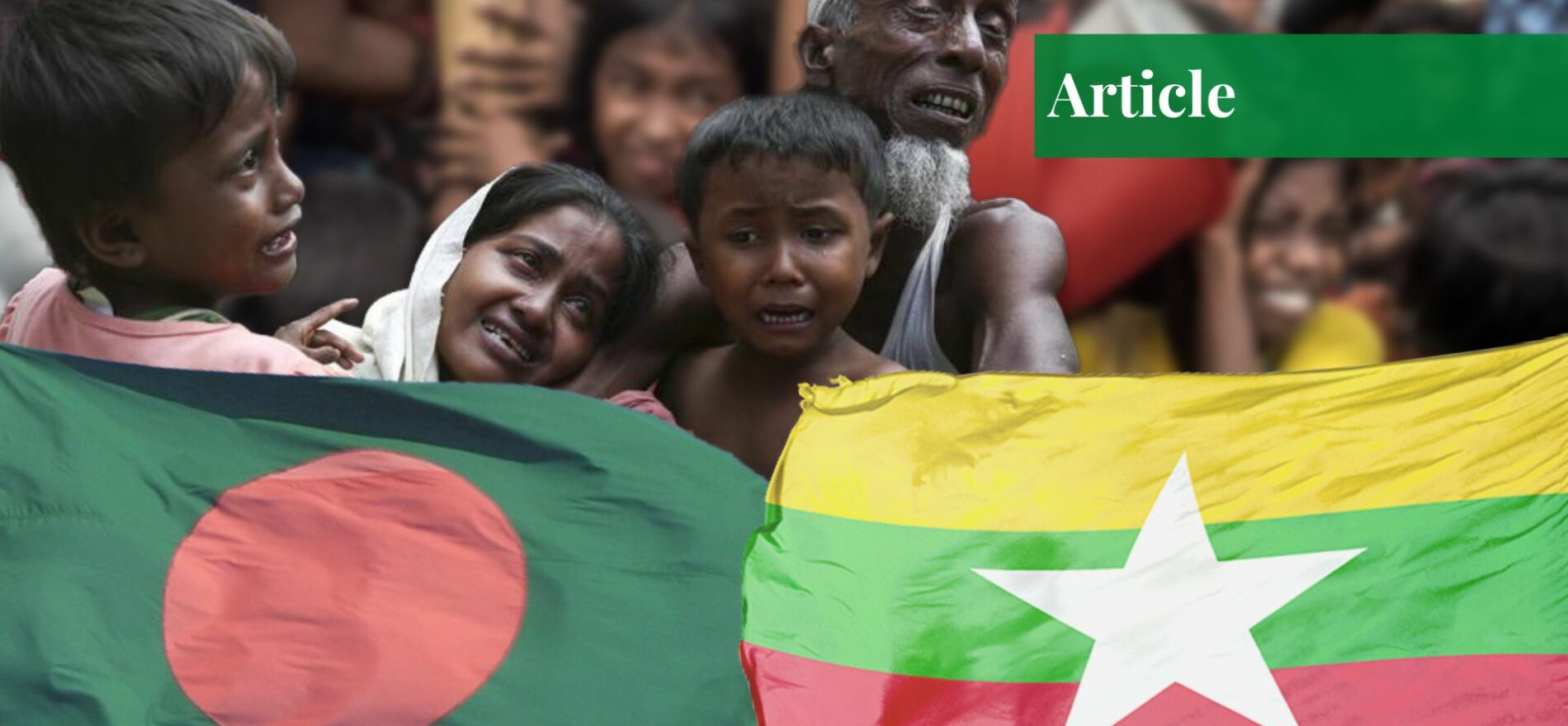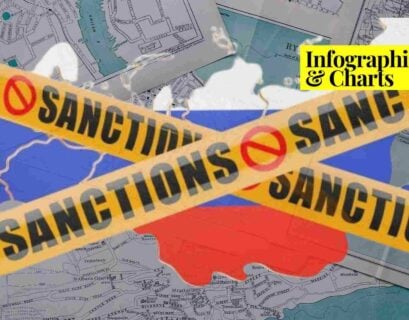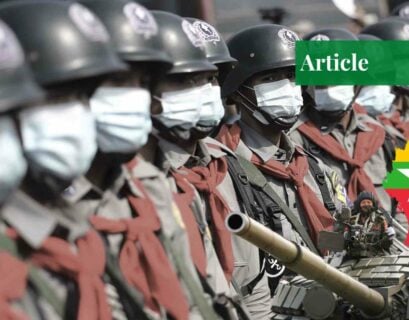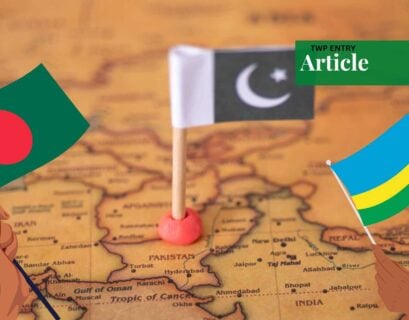Hamra Tariq is an undergraduate student currently pursuing her international relations degree at Kinnaird College for Women, Lahore. She has a keen interest in South Asian politics, the Indo-Pacific, and the shift in the global order.
What Is the Issue?
Myanmar and Bangladesh share a 271 kilometers long sea and land border. Both states have shared tensions over the issue of the Rohingya people. Teknaf and Ukhia, two sub-districts of Cox’s Bazar in Bangladesh which border Myanmar, are home to about 1.2 million Rohingya. The cross-border fire and continuous breach of the air and territorial sovereignty of Bangladesh by Myanmar’s army have escalated tensions between the two neighboring states. The Rohingya crisis along the Bangladesh-Myanmar border has escalated tensions between the two neighboring states.
According to analysts, the firing could be a strategy to push Rohingya Muslims into Bangladesh, shrinking prospects for their repatriation into Myanmar simultaneously. The response from Bangladesh during the initial shelling was rather mild. However, last month on September 16, a Rohingya teenager was killed and four other Bangladeshi locals were injured when a mortar shell fired by Myanmar exploded on the border region.
After the incident, Aung Kyaw Moe, Myanmar’s ambassador in Dhaka, was summoned by Bangladesh’s foreign ministry to express their displeasure with the bombardment and the breach of their airspace. He held the Arakan Army responsible for the shelling and bombing which occurred on the Bangladeshi side of the Bangladesh-Myanmar border. The Arakan Army is an armed force fighting the Myanmar military for the protection of ethnic minorities in Rakhine and Chin. He refrained from answering queries from the Bangladeshi press.
A Look into the Past
The genocidal violence inflicted by Myanmar’s army in 2017 started the Rohingya influx into Bangladesh to seek refuge amid the crisis. More than 1.2 million persecuted Rohingya are currently being sheltered in Bangladesh; the majority of them escaped the genocide in the Rakhine state.
Genocide victims have been flooding into Bangladesh ever since the ethnic cleansing of the Rohingya community. Bangladesh has provided the Rohingyas temporary shelter in response to a request from world leaders. Since that time, not a single individual has been repatriated to Myanmar.
For Bangladesh, this refugee inflow has grown to be a huge concern. In order to find a mechanism to send Rohingya back to Myanmar, Dhaka has been holding discussions with Myanmar. Nevertheless, the process of repatriation has not yet started, because the military government in Myanmar has set requirements for return, showing that it is hesitant to accept the Rohingyas.
Myanmar weaponizes the 1982 Citizenship Law against the Rohingyas. The Rohingya are not one of the 135 national races recognized by the government of Myanmar. The citizenship law’s discriminatory nature widens the racial divide. The denial of acquiring citizenship imposed restrictions on freedom of travel and access to education, as well as led to the loss of land holdings that rendered thousands of Rohingya destitute.
The Arakan Rohingya Salvation Army (ARSA) systematically attacked 30 military checkpoints in 2017, which sparked an outbreak of violence against the Rohingya people. The Myanmar military then began a campaign of mass murder and ethnic cleansing against the Rohingya, which included rape against women and young girls, burning of rural areas, Rohingya encampment, confiscation of their property, abduction of individuals, massacres of men, women, and children, and deportation of Rohingya.
The UN stated that the treatment of the Rohingya “bears all the characteristics of genocide.” However, the Myanmar government refutes these claims and maintains its position that the military attacked in retaliation to the Rohingya’s attacks on 30 military checkpoints. It is imperative to note that journalists, NGOs, and human rights advocates are prohibited from entering several crucial areas of the Rakhine state.
The international effort to repatriate the 1.2 million Rohingyas who are caught up in a war in Bangladesh could end up being a frustrating ordeal. According to experts, Myanmar is engaging in these actions to get Bangladesh to enter into a war.
Bangladesh’s Calculated Reaction
Bangladesh is cautious of border conflicts because it could end up with a number of uncalled-for implications for the country – including unstable borderlands, increased tensions in neighboring districts, an increase in the number of Rakhine refugees, and impediments to its peaceful growth. Dhaka has so far pressured Myanmar through diplomatic channels and regional and international organizations.
Sheik Hasina, the prime minister of Bangladesh, during her address at the UNGA, urged world leaders to take decisive steps to ensure the safe, peaceful, and sustainable return of the Rohingyas to Myanmar. Hasina asserted that the protracted crisis of Rohingya refugees in Bangladesh has significant consequences for the economy, security, and sociopolitical stability of her nation.
She issued a warning that if the crisis is not resolved, it would lead to instability and insecurity in the “region and beyond.” The military junta in Myanmar was criticized by Sheikh Hasina earlier in October for refusing to participate in regional and international efforts to peacefully repatriate Rohingya refugees. She held a media briefing upon her return from the UNGA and once again accused Myanmar of not cooperating to solve the matter.
She mentioned, “Bangladesh has taken many bilateral, trilateral, and multilateral initiatives to repatriate the Rohingya with safety and dignity to their home country. But the sustainable repatriation of Rohingya could not be started to date due to the lack of political will of the Myanmar government.”
Bangladesh expected increased diplomatic pressure from the international community to push Myanmar for repatriation. More importantly, diplomatic initiatives and interactions with Myanmar’s high-ranking civilian and military officials, and the UN and other international organizations in the past have been unable to provide a sustainable solution for the Rohingya crisis.
The Geopolitical Interests
The adverse policy responses by China and Russia, two permanent members of the Security Council with veto powers, remain one of the main obstacles to resolving the issue. Bangladesh maintains friendly and cordial relations with both these superpowers but has been unable to win their crucial cooperation in the Rohingya crisis. These two nations continue to be important strategic allies of the Myanmar government, primarily due to geopolitics.
Myanmar is a state of great strategic importance; both China and Russia provide substantial support to Myanmar in the form of armaments and ammunition. China alone has invested $21 billion in the nation’s various development projects as of March 2020. In December 2017, a UN resolution on the Rohingya refugee crisis was opposed by both China and Russia. They maintain that the issue is a bilateral problem between Bangladesh and Myanmar and it should not be brought to international organizations.
China and Russia both seek to prevent the internationalization of Myanmar’s internal issues, particularly preventing Western influence in the borderlands. China has had significant growing interests in Myanmar for a very long time. These include supporting the key China-Myanmar Economic Corridor (CMEC), ensuring Myanmar’s internal security, and deterring Western countries from surrounding Myanmar. Also, as a commercial gateway to the Indian Ocean, Myanmar is economically significant to China.
Additionally, analysts have noted that the escalating tensions near the Bangladesh-Myanmar border may be caused by China’s geopolitical imperatives. China is keen that Bangladesh remain neutral and has invited Dhaka to join its nascent Global Development Initiative (GDI) and the Global Security Initiative because of the pressure that US and India are exerting on Bangladesh to join QUAD (Quadrilateral Security Dialogue).
ASEAN’s Role in Mitigating the Crisis
The Association for Southeast Asian Nations (ASEAN) includes 10 states from Southeast Asia—Brunei, Cambodia, Laos, Singapore, Malaysia, Philippines, Myanmar, Thailand, and Vietnam. In essence, it serves as a supra-national model of the European Union. Its spheres of cooperation include the economy, politics, security, military, and the sociocultural domain with a goal for integration.
As a result, ASEAN is heavily involved in the situation in Myanmar. Since the coup in Myanmar in February 2021, ASEAN has taken a significant leadership position. The Junta chiefs have been expelled from ASEAN until a peace process is established. However, the National Unity Government (NUG), a shadow government in Myanmar, is already interacting with numerous ASEAN member states. For instance, after a meeting between NUG leaders and the Malaysian foreign minister, NUG has emerged as a key stakeholder in Myanmar for ASEAN.
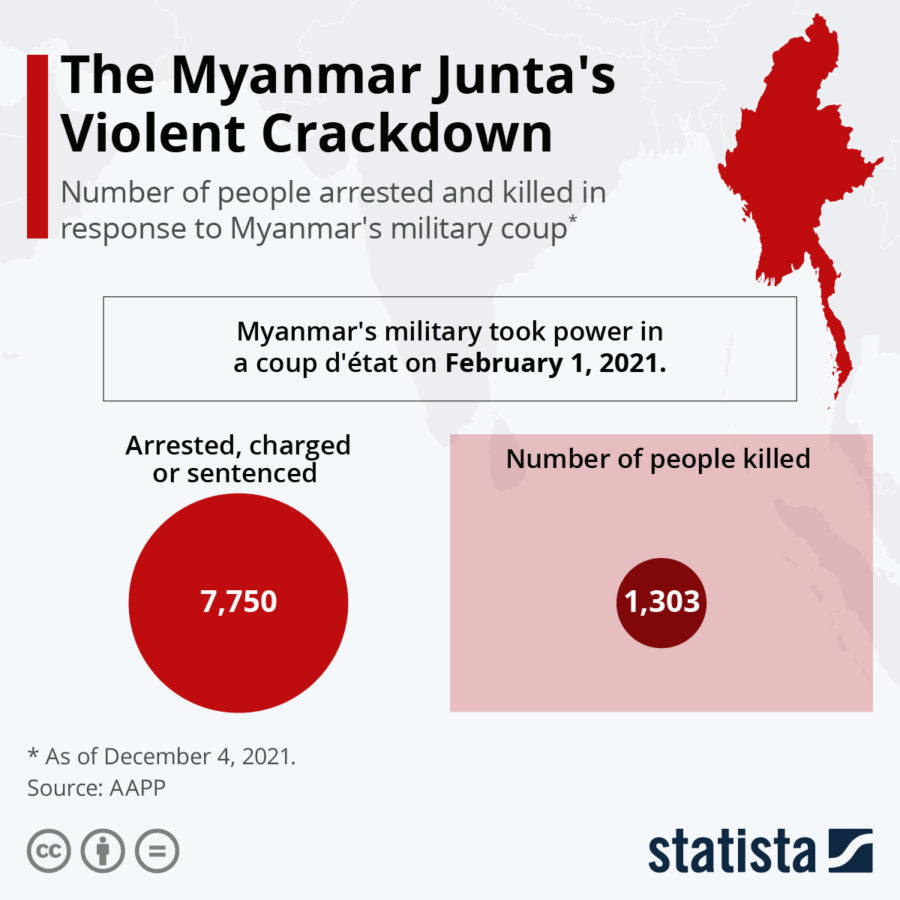
ASEAN can be of significant help in reducing Myanmar’s violations at the border. Bangladesh is not the only victim; Thailand, a member of ASEAN, suffers significantly from Myanmar’s disregard for territorial boundaries. Myanmar frequently violates Thai border laws and is a major source of refugees as well as illicit drug and weapons trafficking.
Under the Junta dictatorship, Myanmar’s Union is failing miserably. Armed conflicts in nearly every state and the resistance of the People’s Democratic Force (PDF) to the Junta are causing more instability in the region where ASEAN is attempting to start a peace process. This unrest also includes the ongoing fighting between the Arakan Army and the Junta in the Rakhine region.
Additionally, the Rohingya people consider the very sensitive state of Rakhine as home, making the situation even more complicated. The region may become even more vulnerable to conflict as a result of new refugee waves and human rights abuses. The tension along the Bangladesh-Myanmar border may just be a preamble to further unrest. Thereby, the importance of ASEAN has considerably increased.
Conclusion
Human rights violations are evident in the bordering districts of Bangladesh and Myanmar. A diplomatic solution is the only way that would decide the fate of stateless Rohingyas stranded in the middle of nowhere. A huge responsibility lies not only on Myanmar and Bangladesh but also on the international community to pitch in their influence to find a lasting solution. These small escalations along the Bangladesh-Myanmar border areas may ignite a large conflict which would lead to regional instability.
Myanmar, in particular, needs to focus on its internal security in order to prevent the intensification of cross-border fires in the crucial border regions. It needs to regulate its position and show flexibility to proposals by Bangladesh and international forums. Bangladesh, on its part, needs to respond very cautiously to the security situation largely created by its neighbor. It requires a mix of diplomatic efforts, legal pressure, and military deterrence.
If you want to submit your articles/research papers/book reviews, please check the Submissions page.
The views and opinions expressed in this article/paper are the author’s own and do not necessarily reflect the editorial position of Paradigm Shift.
